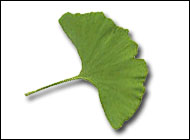Plant experts examine risks of herbal medicines

Plants offer a host of opportunities for treating many illnesses but they are not necessarily safer than synthetic drugs. An international symposium in Lausanne is looking at the potential and dangers of herbal medicines.
Some 300 experts from 44 countries are taking part in this annual conference of the European Phytochemistry Society, which is being held at Lausanne University.
“The plant kingdom is still an unexploited reservoir of new molecules which could one day become useful drugs,” said Kurt Hostettmann, a professor at the university’s Institute of Pharmacognosy and Phytochemistry – the study of drugs derived from plants.
Hostettman points out that only 10 per cent of the Earth’s 350,000 plant species have been studied to ascertain their suitability as drugs.
Plant derived remedies
The cause of herbal medicine has been given a boost in recent years with the emergence of important plant-derived remedies. Taxol, which comes from the bark of the yew tree, is used to treat breast and ovarian cancer; galantamine, an alkaloid taken from the snowdrop bulbs, has been approved in several countries as a treatment for Alzheimer’s disease.
Half a day of the symposium is being devoted to another plant used to treat the symptoms of Alzheimer’s: Ginkgo biloba – the most widely used medicinal plant in the world.
Ginkgo has been found to increase blood flow to the brain and so reduce memory loss. But recent studies suggest it may cause excessive bleeding, especially when combined with aspirin. Pregnant women have also been warned that some types of Ginkgo supplement can cause birth defects.
“Just because it comes from nature, people assume it is safe,” said Hostettmann. “But the strongest poisons in the world occur naturally. It’s wrong to assume that herbal medicine is safer than chemical medicine.”
It is for this very reason that phytochemists like Hostettmann study the properties and effects of plant remedies.
Fatal poisoning cases
“We need to speak about the virtues of these plants, but also of their dangers,” he said, adding that an important element of the symposium is quality control – adopting the right analytical methods.
Hostettmann is particularly concerned about the growing number of people who are taking herbal remedies without medical advice, a practice that has resulted in several fatal cases of poisoning. Earlier this year, the Lausanne institute devised a test to analyse Chinese slimming infusions, some of which were found to contain carcinogenic substances.
“Many people are suspicious of synthetic drugs, and they think that herbal medicines will have fewer side effects. Nothing could be further from the truth,” he said.
Reservoirs of medicine
The growing public demand for natural remedies, and the fact that the plant world constitutes an untapped reservoir of medicines has not escaped the attention of the big pharmaceutical companies, some of which are sponsoring the Lausanne symposium.
The increased commercialisation of remedies made from plants, leads inevitably to concerns about its sustainability. Already there are fears about what effect the use of taxol is having on the yew population, many of whose species are rare. This slow-growing tree is being felled in increasing numbers.
“As soon as a drug is derived from a plant, it is the responsibility of the scientific community to take into account the conservation of this species,” said Hostettmann, adding that efforts should then be made to cultivate these plants so that those occurring in the wild are not disturbed.
by Roy Probert

In compliance with the JTI standards
More: SWI swissinfo.ch certified by the Journalism Trust Initiative
You can find an overview of ongoing debates with our journalists here . Please join us!
If you want to start a conversation about a topic raised in this article or want to report factual errors, email us at english@swissinfo.ch.